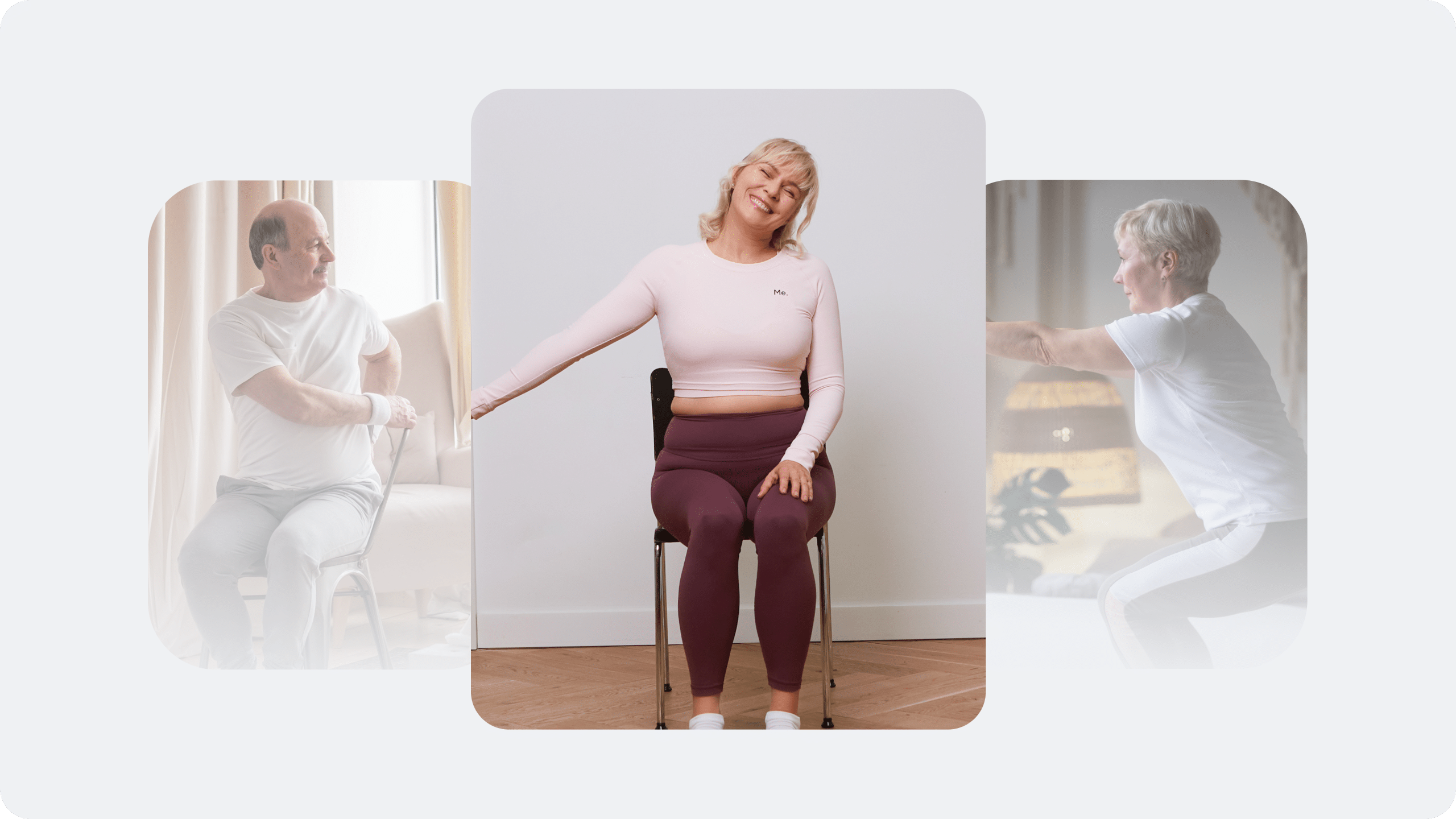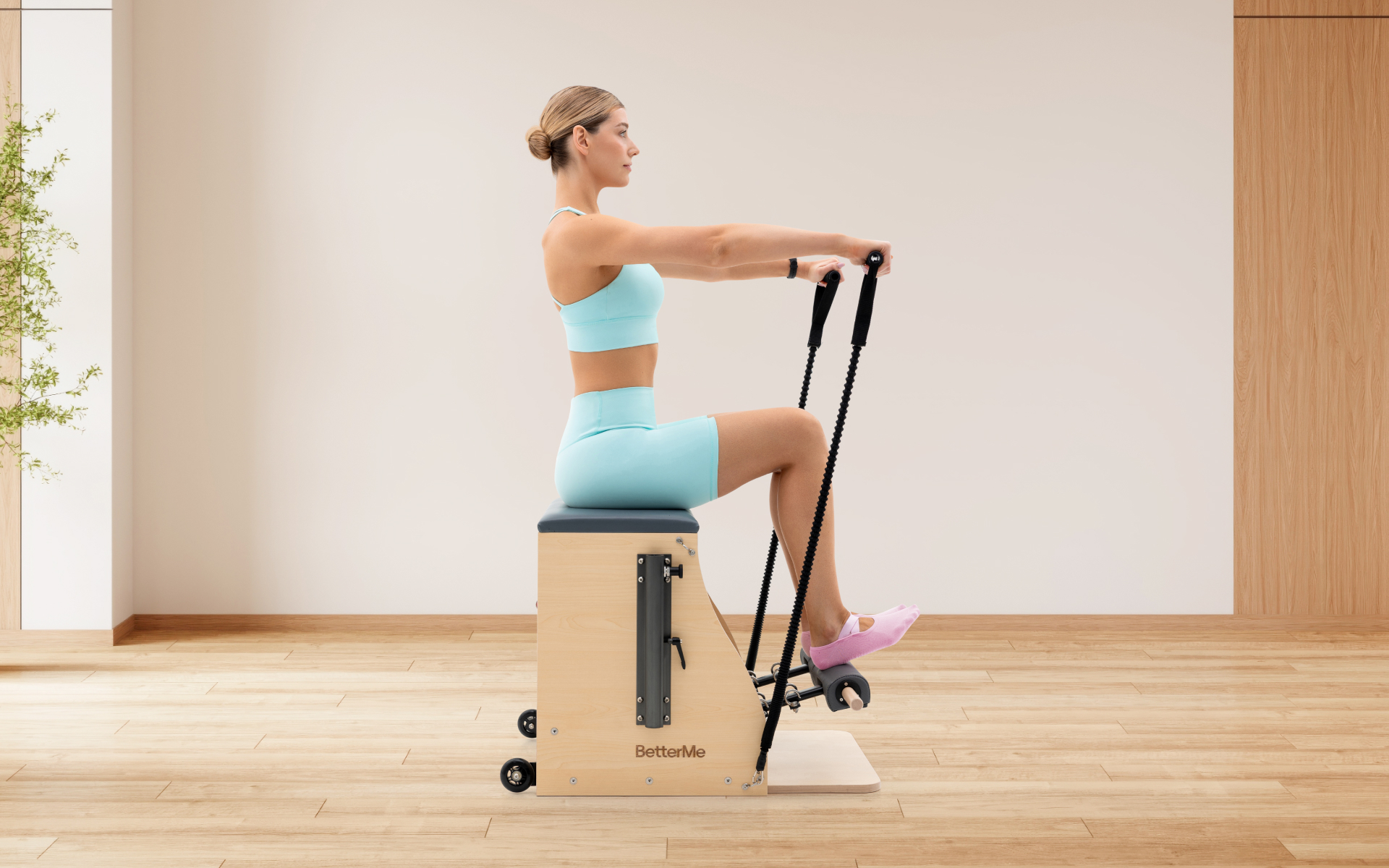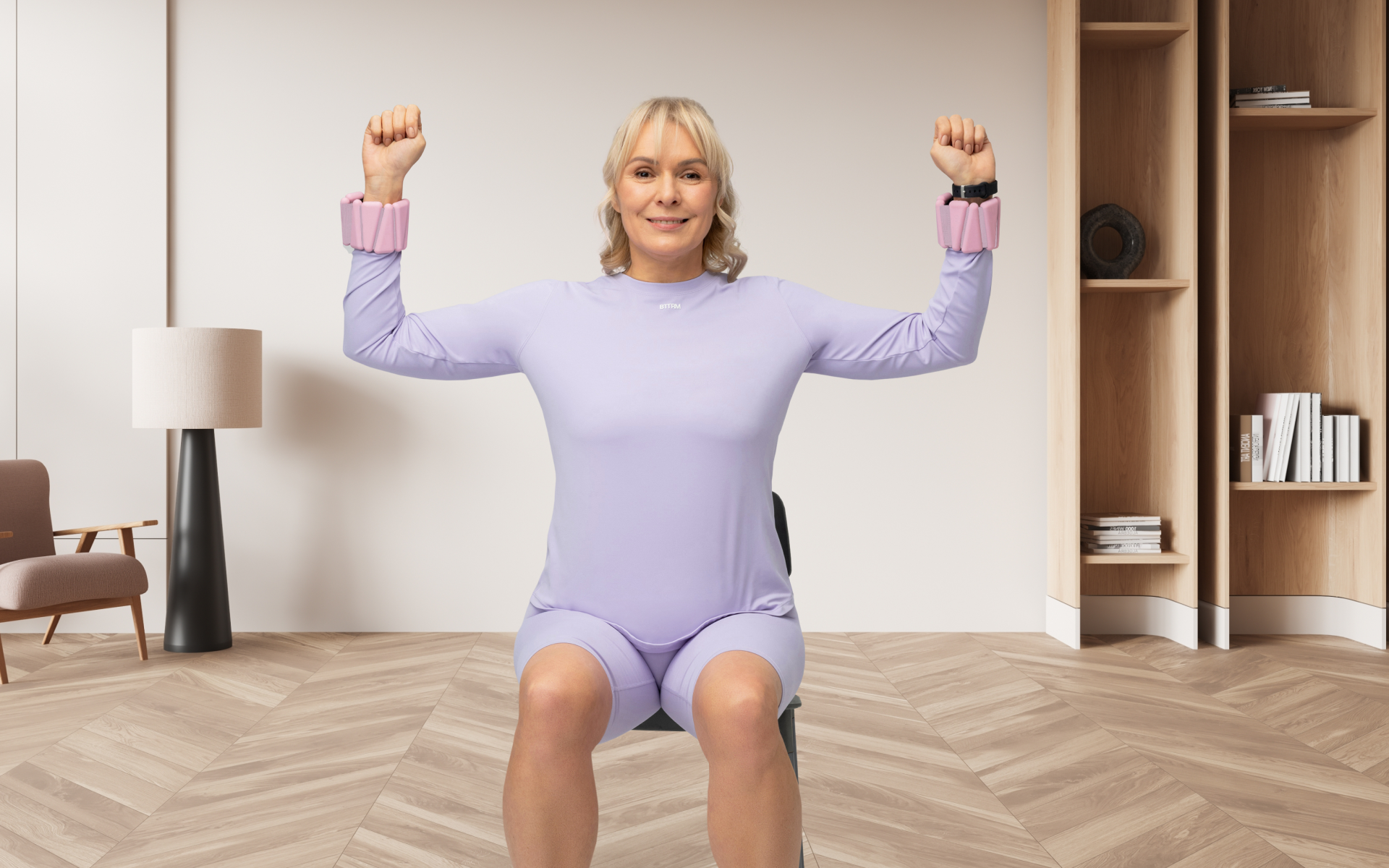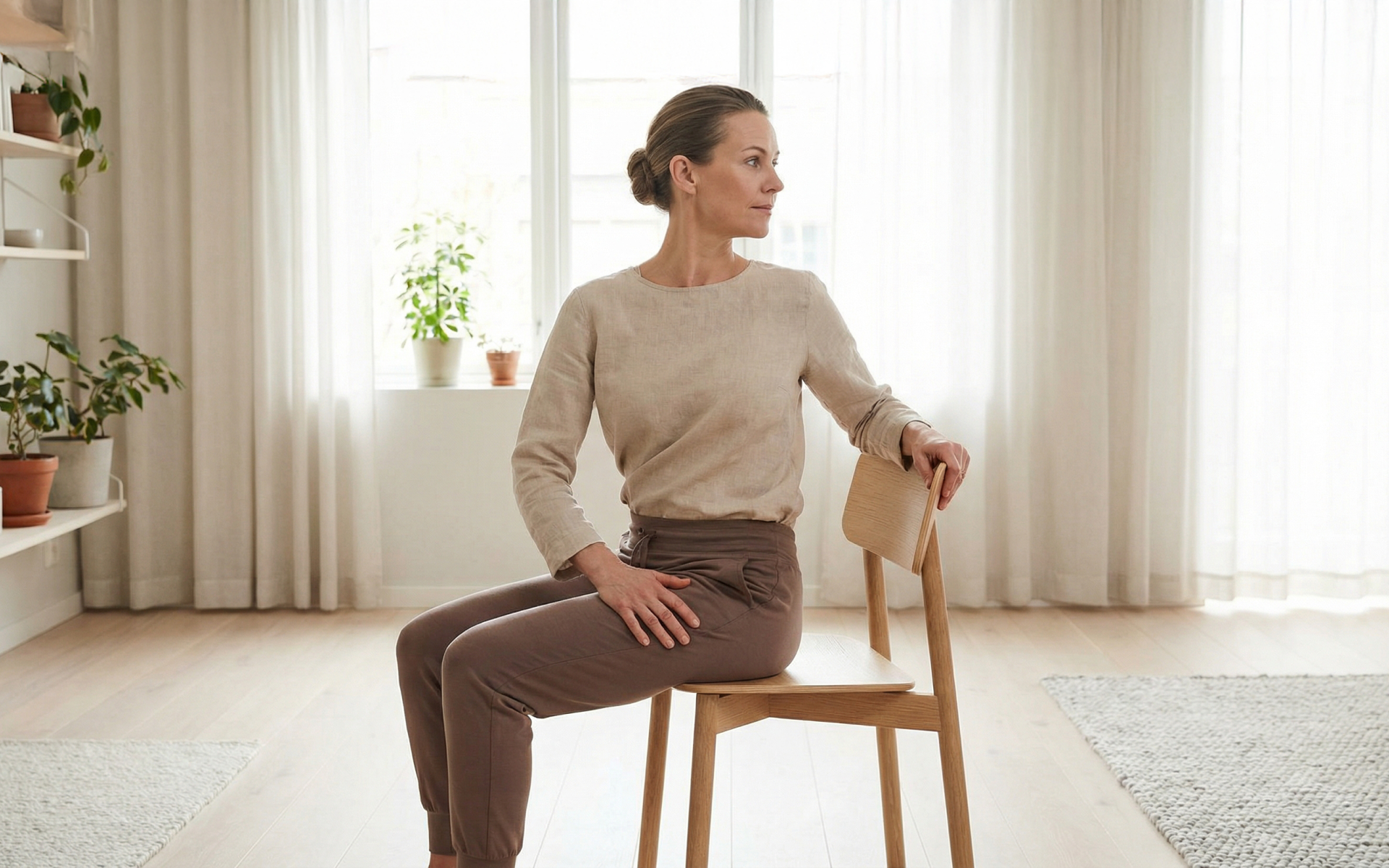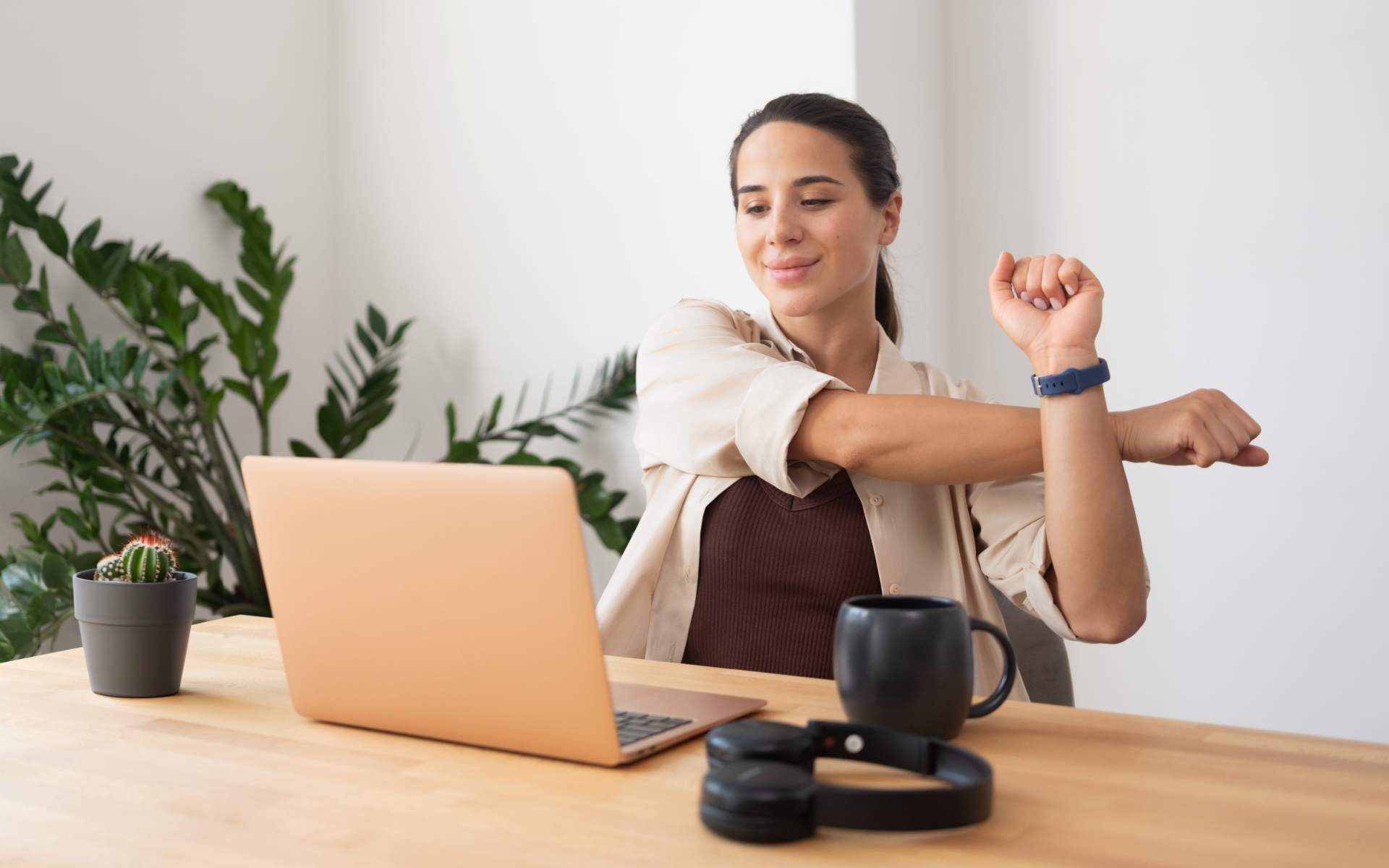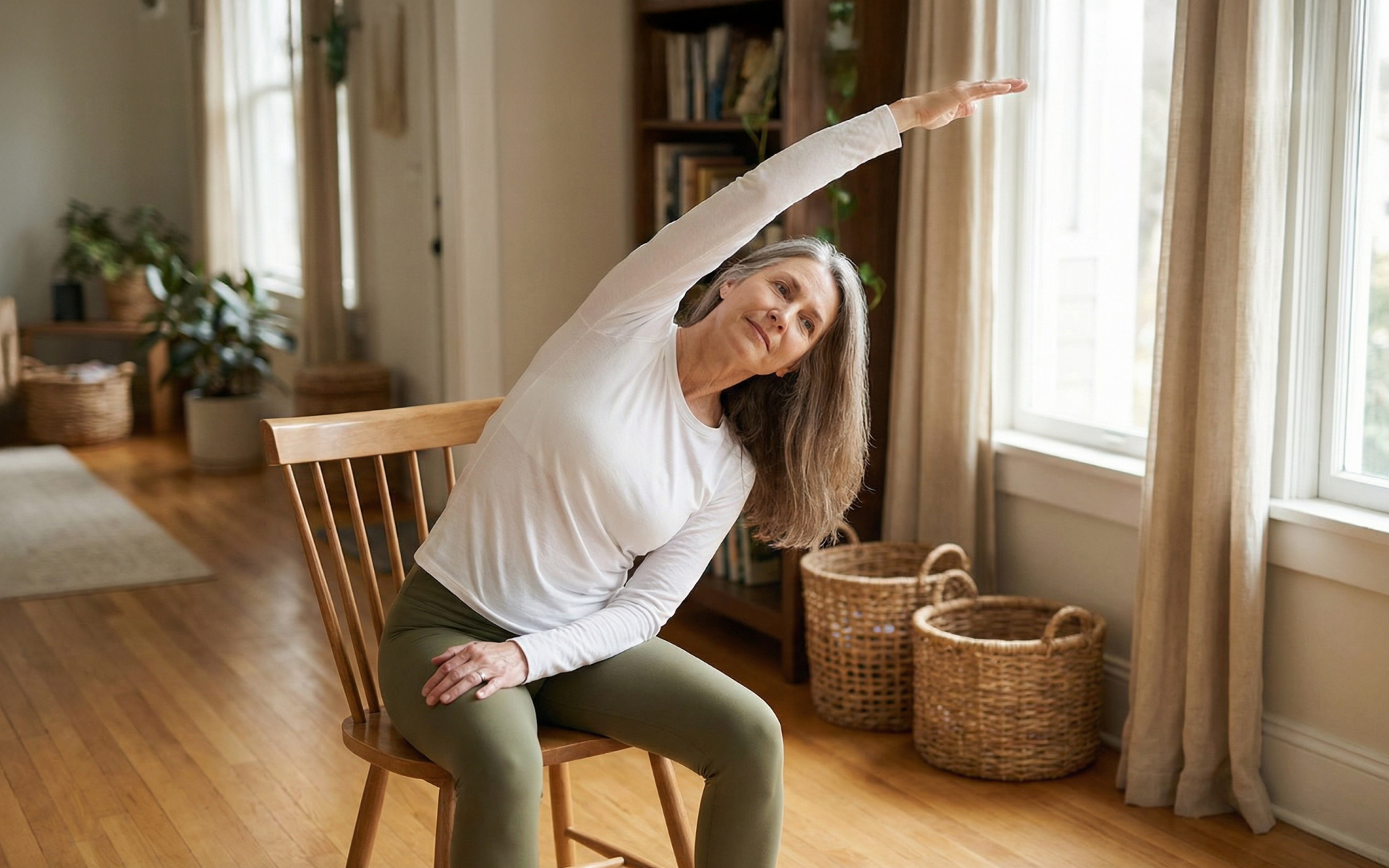Yoga, an ancient practice of physical, mental and spiritual disciplines, has been proven to have numerous health benefits for people of all ages. As we age, our bodies become more prone to various ailments such as joint pain, stiffness, and even chronic conditions like arthritis.
However, practicing yoga can help seniors maintain their mobility, balance and overall well-being. For seniors who may have difficulty getting down to the floor or standing for long periods, chair yoga offers a great alternative. Here are 10 simple and effective yoga chair exercises for seniors to keep them healthy and fit.
Does Chair Yoga for Seniors Really Work?
Yes, chair yoga can be just as effective as traditional yoga for seniors. It consists of modified versions of regular yoga poses and allows seniors to enjoy the benefits of yoga without having to get down on the floor.
Below are some benefits of chair yoga for seniors:
Enhances Flexibility and Mobility
One of the hallmark benefits of the 28 day chair yoga for seniors program is its emphasis on improving flexibility and mobility. As we age, our joints can become less mobile, and our range of motion may diminish. Chair yoga gently encourages the body to stretch, which can help alleviate stiffness and make daily movements easier and more comfortable (1).
Builds Strength
Yoga chair exercises for seniors with weights incorporate light hand weights to build strength in a safe and controlled manner. This aspect of chair yoga is particularly beneficial for maintaining muscle tone, supporting joint health, and enhancing overall stability (1). Strength exercises are crucial for seniors to maintain independence and carry out daily activities with ease.
Promotes Weight Management
For seniors interested in weight management, free chair yoga for seniors to lose weight provides an accessible way to engage in physical activity. While chair yoga is generally low-impact, it can still help burn calories and promote a healthier body weight when combined with a balanced diet (4).
Encourages Mindfulness and Stress Reduction
Chair yoga isn’t solely about the physical benefits; it also offers mental and emotional advantages. Practicing mindfulness and breathing techniques during free chair yoga for beginners sessions can significantly reduce stress levels, enhance mood, and improve overall mental well-being (1)(2). This holistic approach to wellness is especially important for seniors navigating the complexities of aging.
Improves Balance and Prevents Falls
Through targeted exercises, chair yoga helps strengthen the core and improve balance, which is paramount for preventing falls—a common concern among older adults (2). Free printable chair yoga exercises for seniors often include balance-focused poses adapted for safety and efficacy, making them an excellent resource for daily practice.
Offers Accessibility
What makes chair yoga so appealing is its accessibility. Free chair yoga exercises for seniors make it possible for virtually anyone to start practicing, regardless of their physical condition or fitness level. There’s no need for expensive equipment or gym memberships; all that’s required is a chair and the willingness to try.
Yanking yourself back in shape has never been so easy with our game-changing fitness app! Start transforming your life with BetterMe!
Is There a Chair Yoga Class on TV?
If you’re lucky, you may be able to find a chair yoga class on TV. Some local channels may offer classes, or you can search for programs online. Many senior centers and community centers now offer chair yoga classes specifically designed for older adults.
Below, we’ve listed 10 simple chair yoga exercises for seniors that can be done in the comfort of your own home:
1. Seated Cat-Cow
The seated cat-cow pose helps improve spine flexibility and release tension in the back muscles. It engages the core, strengthens the abdominal muscles and improves digestion. For seniors, it can also help alleviate back pain and improve posture.
Before attempting this pose, make sure the chair is stable and has a backrest for support. If you have any neck or back injuries, consult with a doctor before trying this exercise.
Follow these 12 steps to perform the seated cat-cow correctly:
- Sit comfortably on a chair with your feet flat on the ground.
- Place your hands on your thighs and relax your shoulders.
- Inhale and arch your back, pushing your chest forward and lifting your chin towards the ceiling.
- Hold this position for a few seconds.
- As you exhale, round your spine and drop your head down.
- Hold for a few seconds and feel the stretch in your back.
- Repeat this movement 5-10 times, moving with your breath.
- Make sure to keep your movements slow and controlled.
- Focus on feeling the stretch in your spine with each movement.
- You can close your eyes to enhance relaxation and mindfulness.
- After completing the repetitions, return to a neutral sitting position.
- Take a few deep breaths before moving on to the next pose.
2. Seated Forward Fold
The seated forward fold is a great stretch for the hamstrings and lower back. It also helps improve digestion and relieve stress and anxiety. As we age, our hamstrings tend to tighten, leading to discomfort and difficulty in daily activities.
This exercise can help seniors maintain flexibility and ease tension in the lower body. It also helps calm the mind and promote relaxation.
Follow these 10 steps to perform the seated forward fold correctly:
- Sit on the edge of a chair with your feet flat on the ground.
- Keep your spine straight and place your hands on top of your thighs.
- Take a deep breath in and as you exhale, slowly hinge at the hips, folding forward.
- Allow your hands to rest on the ground or grab onto your shins for support.
- Keep your neck relaxed and avoid rounding your back too much.
- Hold this position for 10-15 seconds, breathing deeply.
- To come out of the pose, slowly engage your core and use it to lift yourself back up to an upright seated position.
- Repeat 3-5 times, taking breaks in between if needed.
- As with any pose or exercise, if you experience any sharp pain, avoid this pose or modify it in a way that works for your body.
- Remember to listen to your body and only go as far as feels comfortable for you.
3. Seated Twist
The seated twist is a great exercise for improving spine mobility and digestion. It also helps stretch the chest and shoulders, which can become tight from sitting for long periods.
This pose can be done in a chair with or without armrests. If you have any back or spine injuries, consult with a doctor before trying this exercise.
Follow these 10 steps to perform the seated twist properly:
- Sit on a chair with your feet flat on the ground and your spine straight.
- Place your right hand on the outside of your left thigh and keep your left hand behind you for support.
- Inhale and lengthen your spine, sitting tall.
- As you exhale, twist to the left, using your right hand to gently push against your thigh for resistance.
- Keep your gaze over your left shoulder.
- Hold this pose for 10-15 seconds, breathing deeply.
- On an inhale, return to the center and repeat on the other side.
- Continue alternating sides for 5-10 repetitions, moving with your breath.
- Make sure to keep your hips and feet stable throughout the movement.
- To come out of the pose, return to a neutral sitting position and take a few deep breaths before moving on to the next exercise.
If you wish to cinch your waist, tone up your bat wings, blast away the muffin top – our fitness app was created to cater to all your needs! BetterMe won’t give excess weight a chance!
4. Seated Pigeon
The seated pigeon pose is a great hip opener and can help reduce stiffness and pain in the hips. As we age, our hips tend to lose some of their natural mobility, leading to discomfort and difficulty in daily activities.
This exercise can help seniors maintain flexibility and ease tension in this area. It also helps improve posture by releasing tightness in the glutes. For seniors with knee or hip issues, particularly those who have undergone total hip replacement surgery, consult with a doctor before trying this pose.
Follow these 11 steps to perform the seated pigeon correctly:
- Sit on a chair with your feet flat on the ground.
- Cross your right ankle over your left knee, creating a figure four shape with your legs.
- Flex your right foot to protect your knee and keep it in line with your ankle.
- Sit up tall and place your hands on top of your right knee for stability.
- Inhale and as you exhale, slowly lean forward, keeping your back straight.
- You should feel a stretch in the outer hip of your right leg.
- Hold this pose for 10-15 seconds, breathing deeply.
- To deepen the stretch, you can gently press on your right knee with your hands.
- On an inhale, slowly come back to a neutral seated position.
- Repeat on the other side for 5-10 repetitions, moving with your breath.
- Remember to take breaks in between if needed and listen to your body’s limits.
5. Overhead Stretch
The overhead stretch is an effective exercise for improving upper body flexibility and reducing tension in the shoulders and back. It also aids in enhancing posture and can relieve symptoms of upper back pain often associated with prolonged sitting.
This simple stretch can be performed in a seated position, making it an excellent option for seniors looking to maintain their range of motion.
Follow these steps to perform the overhead stretch correctly:
- Sit on a chair with your feet flat on the ground and your spine straight.
- Extend your arms straight above your head, interlocking your fingers with your palms facing upwards.
- Inhale deeply, elongating your spine and reaching your arms as high as comfortably possible.
- Exhale slowly, gently stretching further if possible, without straining.
- Hold the stretch for 10-15 seconds, concentrating on deep breathing.
- On an exhale, slowly lower your arms back to your sides.
- Repeat the stretch 3-5 times, taking breaks as needed.
Before attempting this exercise, seniors with shoulder injuries or discomfort should consult with a healthcare professional. Ensuring movements are gentle and within a range of comfort is crucial to avoid potential strain.
6. Eagle Arms
Eagle Arms pose facilitates shoulder mobility and can help alleviate tension in the upper back and neck areas. It also aids in strengthening the arms and improving posture. This pose can be done seated or standing, making it a versatile option for seniors of all abilities.
Follow these steps to perform eagle arms correctly:
- Sit on a chair with your feet flat on the ground and your spine straight.
- Extend both your arms straight out in front of you at shoulder height.
- Cross your right arm over your left, bending at the elbows and bringing your palms together.
- If possible, hook your right elbow inside your left elbow.
- Hold this position for 10-15 seconds while focusing on deep breathing.
- Release and switch sides by crossing your left arm over your right.
- Repeat the movement 3-5 times on each side.
Individuals with pre-existing shoulder or elbow issues should proceed cautiously and might consider reducing the range of motion or consulting a healthcare provider before attempting this pose.
7. Seated Warrior Pose
The Seated Warrior Pose is an excellent choice for those looking for a safe and simple way to improve the mobility of the hip flexors. The hip flexors are a crucial muscle group involved in lifting your legs when you walk, climb stairs, get into the car, and do many other daily tasks. However, they are also a muscle group that becomes notoriously tight as we age if we don’t do something to address it.
Tightness in the hip flexors has a trickle-down effect on posture and balance. As the severity of hip flexor tightness increases, we lose the ability to stand fully upright, which forces our center of gravity forward, increasing the risk of falling.
To mitigate this, performing poses like the seated warrior pose will maintain or restore our hip flexor muscle length and flexibility.
Follow these steps to perform the seated warrior pose correctly:
- Sit in a chair with your feet flat on the ground and an upright posture.
- Bring your right leg out to the right side of your chair, keeping your knee bent, so your toes are no longer facing directly forward.
- Stretch your left leg out to the left side of the chair with the knee extended, but the foot flat on the ground.
- Extend your arms straight out to your sides at shoulder height.
- Rotate your torso to the right so your right arm is parallel with your right thigh.
- Shift your weight slightly more onto your right foot while keeping your left leg straight. A slight bend in your left knee is okay as long as you are able to keep your left foot flat on the ground.
- Hold this position for 10-15 seconds while focusing on your breath.
- Slowly return to the starting position.
- Repeat on the same steps to the opposite side.
- Repeat 3-5 times each side.
Read more: Calisthenics Shoulder Exercises: Techniques and Workouts
8. Neck Stretch
The Neck Stretch is essential for relieving tension and stiffness in the neck muscles, which is common due to poor posture or prolonged sitting. Regular practice of this simple exercise can also aid in enhancing neck mobility.
To perform a Neck Stretch:
- Sit comfortably in a chair with your feet flat on the ground and spine straight.
- Slowly tilt your head towards your right shoulder, aiming to stretch the left side of your neck.
- For a deeper stretch, gently place your right hand on your head and add a slight pressure while holding the seat of the chair with your left hand.
- Hold this position for 10-15 seconds, then slowly return to the starting position.
- Repeat on the left side to stretch the right side of your neck.
- Perform this stretch 3-5 times on each side, breathing deeply throughout.
9. Seated Mountain Pose
The Seated Mountain Pose is a grounding exercise that helps improve posture, focus, and breathing. It is a fundamental pose that strengthens the core, aligns the spine, and promotes relaxation through deep, mindful breathing.
How to do the Seated Mountain Pose:
- Sit at the edge of your chair with your feet flat on the ground and hands resting on your thighs.
- Engage your core and straighten your spine as if a string is pulling you from the crown of your head.
- Inhale and extend your spine further, rolling your shoulders back and down.
- Exhale slowly and maintain the posture, feeling your body grounded and stable.
- Hold this pose for 30 seconds to 1 minute, focusing on deep, calm breaths.
Can You Lose Weight Doing Chair Yoga for Seniors?
Chair yoga for seniors won’t typically result in significant weight loss, as it is a low-intensity form of exercise. However, regular practice of chair yoga can contribute to maintaining an overall healthy lifestyle and potentially lead to some weight loss over time, when balanced with a well-rounded diet.
Chair yoga results in improved flexibility, balance, posture, and reduced stress and tension in the body. These benefits can also cause increased energy levels and a more active lifestyle, which can aid in weight management (1).
How Many Days a Week Should You Do Chair Yoga?
Practicing chair yoga for seniors a few times a week can bring noticeable benefits. However, the frequency and duration of your chair yoga practice will depend on your personal goals and abilities.
If you’re new to chair yoga, start with 1-2 sessions per week and gradually increase as desired. It’s important to listen to your body and take breaks or modify poses if needed.
FAQs
Is it OK to do chair yoga every day?
Yes, it is perfectly fine to practice chair yoga every day. Chair yoga is a low-impact form of exercise tailored to increase flexibility, muscle strength, mental clarity, and decrease stress, making it an ideal daily activity. Because it’s gentle on the body, it suits people of all fitness levels, especially seniors or those with mobility limitations.
What is the best free exercise app for seniors?
BetterMe is a highly recommended free exercise app for seniors. It offers personalized workout plans, including chair yoga routines tailored to individual needs and goals. It also provides audio instructions and visual demonstrations of exercises, making it easy to follow along.
Is chair yoga worth it?
Absolutely, chair yoga is worth it. It provides a safe and accessible way for individuals of all ages and fitness levels to enjoy the benefits of yoga. By improving flexibility, balance, and strength, chair yoga can significantly improve one’s quality of life. Furthermore, it offers the mental health benefits of traditional yoga, such as reduced anxiety and improved mood, without the need for complex poses and equipment (1).
What is the most beneficial exercise for seniors?
Although there is no single most beneficial exercise for all seniors, since that is highly dependent on a person’s goals, functional ability, medical history, preferences, and other factors, a simple walking program is a wonderful place to start for most. It’s accessible, easy to start, and can be adapted to fit each individual’s fitness level. Regular walking helps maintain cardiovascular health, improve balance and coordination, enhance muscular endurance, and promote joint health (3).
Additionally, walking can be a social activity, encouraging companionship and interaction with others, which is vital for mental health.
The Bottom Line
As we age, it’s important to incorporate gentle stretches and exercises into our daily routine to maintain flexibility, mobility and overall well-being. These simple chair yoga poses are a great way for seniors to stay active and improve their physical and mental health.
Remember to always listen to your body and only go as far as feels comfortable for you. With consistent practice, you may even notice improvements in your balance and strength.
DISCLAIMER:
This article is intended for general informational purposes only and does not serve to address individual circumstances. It is not a substitute for professional advice or help and should not be relied on for making any kind of decision-making. Any action taken as a direct or indirect result of the information in this article is entirely at your own risk and is your sole responsibility.
BetterMe, its content staff, and its medical advisors accept no responsibility for inaccuracies, errors, misstatements, inconsistencies, or omissions and specifically disclaim any liability, loss or risk, personal, professional or otherwise, which may be incurred as a consequence, directly or indirectly, of the use and/or application of any content.
You should always seek the advice of your physician or other qualified health provider with any questions you may have regarding a medical condition or your specific situation. Never disregard professional medical advice or delay seeking it because of BetterMe content. If you suspect or think you may have a medical emergency, call your doctor.
SOURCES:
- Exploring the Benefits of Chair Yoga for Seniors: A Gateway to Enhanced Wellness (2024,nih.gov)
- Safety and feasibility of modified chair-yoga on functional outcome among elderly at risk for falls (2012,nih.gov)
- The multifaceted benefits of walking for healthy aging: from Blue Zones to molecular mechanisms (2023,nih.gov)
- Yoga for Health: What the Science Says (2020,nih.gov)
